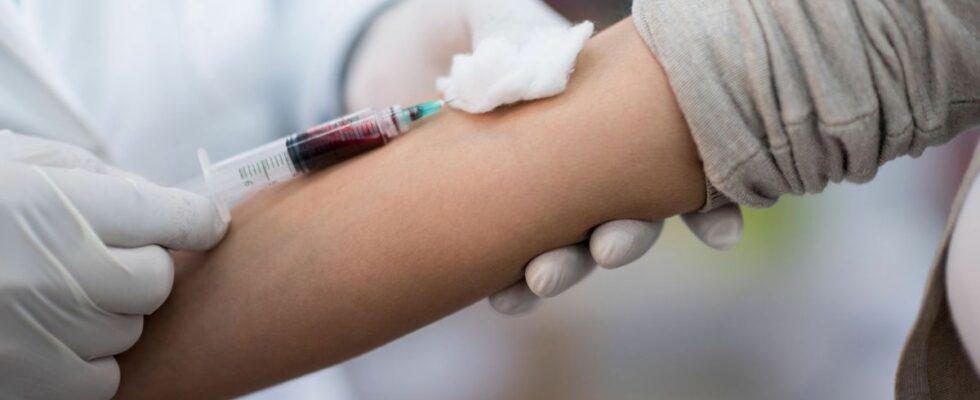Published on
Updated
Reading 3 min.
Researchers have lifted the veil on a new blood test capable of predicting the recurrence of breast cancer several months, or even years, before the relapse. A feat made possible thanks to the detection of “tiny quantities of cancerous DNA” in the blood, and the results of which were presented at the annual congress of the American Society of Clinical Oncology (ASCO) in Chicago.
The researchers’ work is only just beginning, but it is a considerable step forward in research dedicated to the fight against breast cancer. A team of scientists from the Institute of Cancer Research (ICR) in London has carried out a trial which confirms the effectiveness of this new type of “ultrasensitive” blood test, as it itself confirms in a press release. This discovery could not only improve post-treatment monitoring of patients, but also “jet[er] the basics of treatment to prolong [leur] life“In other words, the earlier the recurrence is detected, the more treatment can be anticipated to increase the chances of recovery.
A technique capable of identifying up to 1,800 mutations
According to the results presented by the researchers, it is more precisely “an ultrasensitive liquid biopsy“which could make it possible to determine”the presence of tiny amounts of cancerous DNA“. In their essay, presented at the most important cancer conference, the scientists managed to identify patients who subsequently suffered a relapse – and who therefore needed preventive treatment. This is not the first time that researchers have mentioned the possibility of using such a test to predict recurrence, but it would, according to the authors of this work, be much more sensitive because it is based on a technique capable of identify up to 1,800 disease-related mutations.
“Breast cancer cells may remain in the body after surgery and other treatments, but they may be so few in number that they are undetectable on follow-up scans. These cells can cause a relapse in breast cancer patients several years after their initial treatment. Ultrasensitive blood tests could offer a better approach for long-term monitoring of patients whose cancer is at high risk of recurrence“, explains Dr Isaac Garcia-Murillas, researcher in the molecular oncology group at the ICR.
Improve support
To reach their conclusions, the researchers analyzed blood samples from 78 patients with different types of early breast cancer, taken at the time of diagnosis, after the second cycle of chemotherapy, after surgery, and all three months during the first year of follow-up. Then at a lesser frequency: every six months for five years. The objective is to detect the presence of circulating tumor DNA (tcDNA), a biomarker from cancer cells.
The authors of the work observed an association between ctDNA detection after surgery or during the follow-up period and an increased risk of recurrence and poorer overall survival. They also identified the 11 patients who relapsed using this ultrasensitive blood test, 15 months on average before said recurrence. But scientists suggest a delay which can extend up to 41 months, or more than three years, before the relapse in question. The researchers specify, however, that three patients for whom ctDNA was detected during follow-up did not recur at the end of the research.
Early detection to better fight cancer
“Early detection is one of our best weapons against breast cancer and these initial results suggest new tests could help detect signs of breast cancer recurrence more than a year before symptoms appear , are incredibly exciting“, emphasizes Dr Simon Vincent, director of research for the charity Breast Cancer Now, which co-funded the study.
And to specify: “Although this research is in its early stages, detecting a recurrence of breast cancer earlier means that treatment has a much greater chance of destroying the cancer and preventing it from spreading to others. other parts of the body, which then makes it incurable“.
